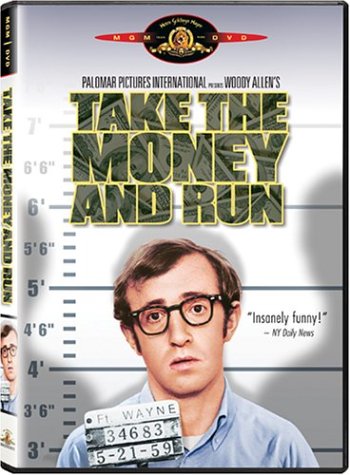Hulu's Business Model Dilema
/ Hulu, yet another example of an industry trying its best to maintain its business model with minmal innovation in the face of a rapidly changing world. "Remember that Woody Allen movie "Take the Money and Run" where Woody's character keeps getting his glasses broken by bullies and finally in one scene when he is confronted again he takes them off himself and smashes them? Well, that's the kind of logic the industry used on Hulu." This according to Joe Flint of the LA Times yesterday morning and Joe's right...But there's more.
Hulu, yet another example of an industry trying its best to maintain its business model with minmal innovation in the face of a rapidly changing world. "Remember that Woody Allen movie "Take the Money and Run" where Woody's character keeps getting his glasses broken by bullies and finally in one scene when he is confronted again he takes them off himself and smashes them? Well, that's the kind of logic the industry used on Hulu." This according to Joe Flint of the LA Times yesterday morning and Joe's right...But there's more.
As the LA Times reported, Hulu, the popular online site for watching television shows, is preparing to execute the toughest maneuver in digital media: moving from free to pay. The service will begin testing a subscription offering as soon as May 24, according to people with knowledge of the plans.
Under the proposal, Hulu would continue to provide for free the five most recent episodes of shows such as Fox's " Glee," ABC's "Modern Family" and NBC's "Saturday Night Live." But viewers who want to see additional episodes would pay $9.95 a month to access a more comprehensive selection, called Hulu Plus, these people said.
Its important to remember something when you consider Hulu , its owned by a consortium of content creators, News Corp., NBC Universal and Walt Disney Co., who want to preserve the cable and satellite fees that pay for the high cost of TV production. In other words these guys want to make certain they continue to be paid vast sums of money for what they make. They don't want their business model to change; its too profitable. Therein lies a bit of Joe's analogy and therein lies the pickle Hulu is in. They have to control the distribution channel to realize their goals.
According to the LA Times story on the topic "Television executives don't want to suffer the same fate as music industry or newspapers, which saw revenues plummet after users flocked to free access to songs, stories and classified ads online. Already, Hulu fans are decrying the proposal and threatening to turn to Internet pirate sites to watch their favorite shows."
With all of the alternate means of distribution emerging, the days of owning both content creation and its distribution will become harder, without of course sacrificing FAT margins. The existing scheme of content creators owning distribution channels should be discouraged to increase competition and improve quality and diversity. In the end the consumer will decide, no matter the media industry's continued manipulation of the government to protect its interests (watch Lessig). To this point read the "Economics of Free" and "Kindle vs. Publishers, the Wrong Debate".
The essence is competition and value. Competition for content and the value extracted by organizations who are mainly middle men; intermediaries between creation and the utlimate consumer is coming under attack in all industries. As I wrote in Kindle vs. Publishers, the Wrong Debate, "Its all about economics. In a business where barriers to entry used to be up front costs in promotion, development, distribution and production, new business models have emerged to render the past value of publishers increasingly mute." There is a reason Apple is one of the largest distributors of content in the world now - economics.
Many people believe that "The challenge will be whether Hulu Plus has enough ‘added value' so that consumers perceive that it's worth the price," said Michael McGuire, media analyst with research firm Gartner. While true that is really a near term problem. The challenge for the owners of Hulu is wether they can keep extracting their margins for what they do given the rise of so may distribution and content alternatives ala Netflix and others.






